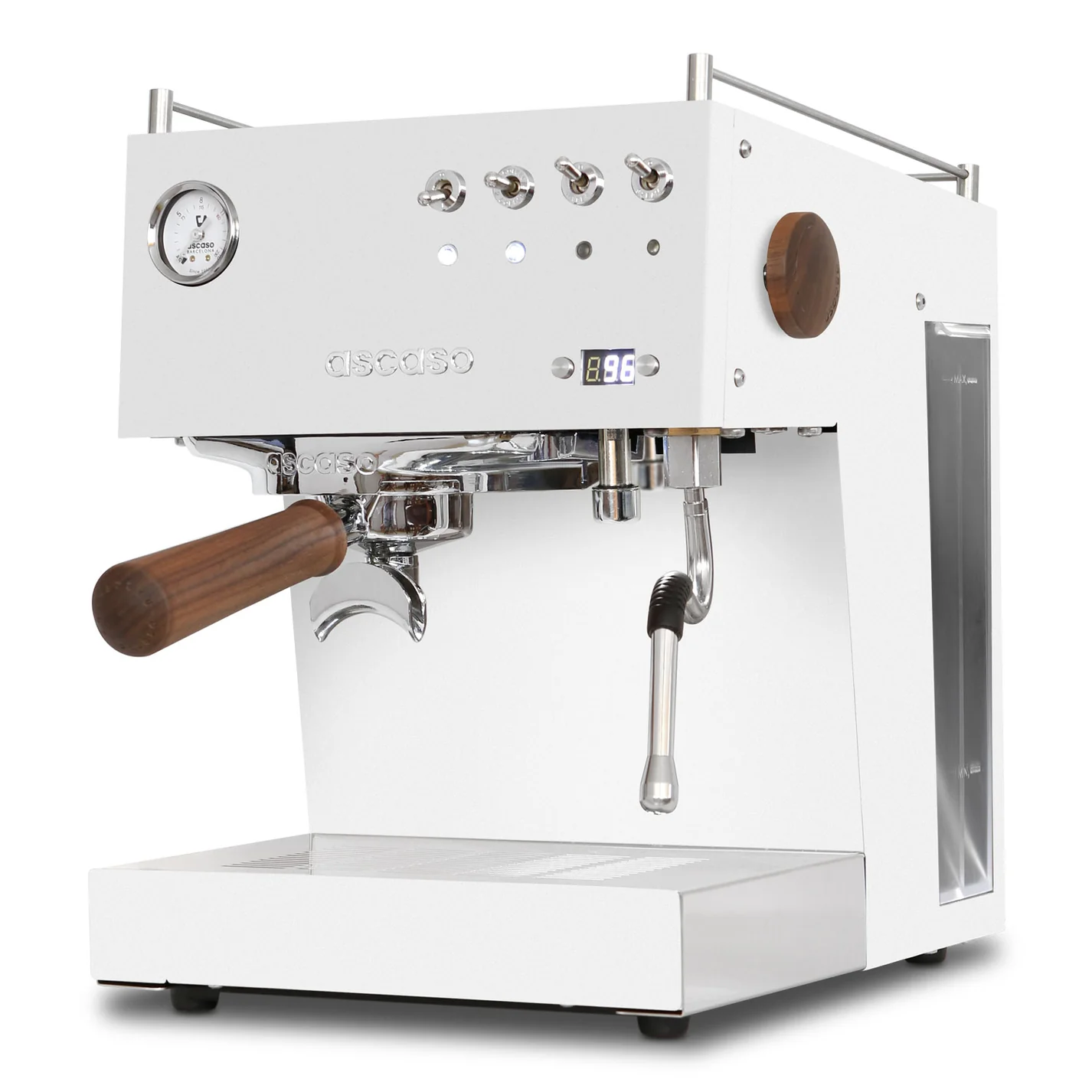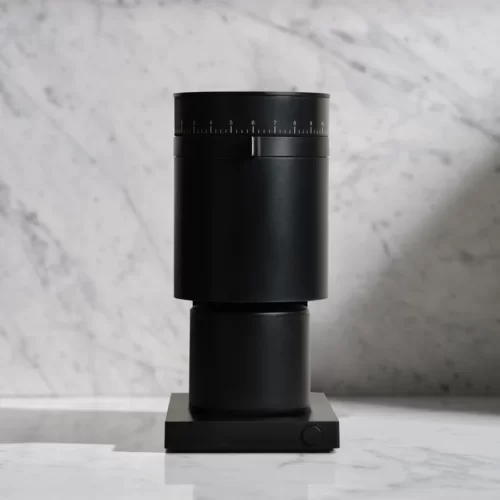Organic Coffee vs. Regular Coffee: The Truth Will Shock You

Heads up: This content is reader-supported, meaning we may earn a small commission if you click on some of our links.
We love trying new things. Especially when it comes to coffee beans.
But there is so much to consider when selecting the best coffee beans to try, and it can be a bit… much. Light roast or dark roast? Arabica or robusta? Single-origin or a blend? Oh my!
However, something many people may not consider is organic coffee vs. regular coffee. And yes, it’s important. Like, saving-the-planet-level important.
We all know that organic is better when it comes to most produce. But should coffee be organic? Is organic coffee necessary? Let’s look at organic coffee vs. regular coffee and learn a bit about the benefits of organic coffee.
Table of Contents
Organic Coffee Vs. Regular Coffee

What Does Organic Coffee Mean?
For a coffee to be certified organic, it must meet several stringent criteria ranging from soil quality to pest and weed control and additives. Coffee labeled with the USDA organic seal has followed rigorous organic supply chain management practices and quality standards.
These standards include everything from the health of the soil, the absence of any GMO crops in production, pest/weed management, and environmental impacts/benefits (carbon emission reduction, carbon sequestration).
The USDA organic standards also require strict supply chain and manufacturing controls for roasting and manufacturing.

What’s The Difference Between Organic Coffee And Regular Coffee?
The best way to compare organic coffee with regular coffee is to examine their origin stories closely—in this case, the farming and growing process.
The coffee beans we brew are the seeds from the cherries of the coffee plant. There are estimated to be 25 to 100 species of coffee plants in the world today.
Coffee plants grow best in rich soil with mild temperatures, frequent rainfall, and a mix of shade and sun. Sounds like a place we’d thrive in as well. Just saying.

Organic coffee plants and regular coffee plants start out precisely the same. However, organic coffee plants aren’t treated with pesticides, additives, or artificial substances during their lifetime. An organic coffee farmer will use natural methods to fertilize the soil (typically with manure), remove weeds, and treat pest problems.
On the other hand, regular coffee plants are grown without these strict standards and are often subjected to pesticide treatments and other harmful chemicals proven to cause groundwater contamination, degradation of plant and animal species, and direct and indirect adverse effects on human health.
A conventional coffee farmer will start with coffee plant seeds soaked in fungicides, a fertilizer loaded with petroleum and chemicals, and irrigation water treated with pesticides to keep the bugs away. Once the coffee plants have developed, chemical weed removal treatments will be utilized.
While all agricultural production is regulated at some level, we don’t love the idea of our morning cup of coffee negatively impacting our planet.

Is Organic Coffee Healthy?
While the health benefits of coffee are widely debated, we like to think that drinking coffee that’s never been exposed to chemicals has inherent health benefits.
When comparing organic coffee vs. regular coffee, keep in mind that regular coffee is one of the most heavily chemically-treated crops globally. This means that conventional coffee can be potentially dangerous to the farmers who handle the coffee cherries and to us as consumers.
These chemicals also harm the environment (and those living near areas where conventional coffee is farmed), which we take very seriously. So, while regular coffee still offers some health benefits despite the chemicals used to farm it, we prefer organic coffee vs. regular coffee.
Organic coffee is also said to have higher levels of antioxidants. A caffeine boost plus an antioxidant boost? Yes, please.

Should Coffee Be Organic?
While we’ve covered many of the beneficial characteristics of organic coffee vs. regular coffee, let’s look at some of its lesser-known qualities.
Why is organic coffee better?
Organic farming can slow climate change. In a 30-year study by the Rodale Institute, researchers found that organic farms produced 40% fewer greenhouse gases than conventional farms. Organic farming also supports water conservation and water health. Organic farmers use mulch to conserve water and avoid harmful fertilizers and pesticides, which threaten US rivers through non-organic farm runoff.
Organic farming methods improve soil quality and reduce erosion. This means better land for the plants and animals that live on or near organic farms and a healthier planet overall.

Why Drink Organic Coffee
There are many compelling reasons to choose organic coffee vs. regular coffee. But we like to roast and brew organic coffee beans because it’s better for everyone. Organic coffee farming has been proven to provide environmental, ethical, and health benefits to humans, animals, plants, and the land.
But if those reasons aren’t enough to convince you to switch to organic coffee, some claim they can taste the difference between organic coffee and regular coffee.
While we haven’t necessarily found any consistency to this claim, perhaps just knowing that your coffee is better for the planet makes it taste a little sweeter.

Closing Thoughts – Is Organic Coffee Worth It?
In a word, yes.
Several delicious varieties of certified organic coffee are available at reasonable prices, so don’t let the (occasional) higher price tag deter you.
You can find a great selection of organic coffee beans at Costco, and there’s quite a variety of organic coffee on Amazon. Organic coffee has become incredibly accessible in recent years, so there’s no reason not to buy organic coffee vs. regular coffee.
If you’re loyal to your local coffee roaster and prefer to buy your beans directly from them, that’s awesome! Ask them about where they source their beans. You’d be surprised to learn that many small roasters only source and use organic coffee beans in their shops (like us!).
FAQ’s
Is Organic Coffee Low Acid?
Not necessarily. The roasting process heavily influences the acidity level in coffee.
You might be surprised to learn that dark roast coffee has lower acidity than light roast coffee. This is because the longer roasting process removes more acids, so opt for a medium to dark roast if you have a sensitive stomach. Alternatively, cold-brewing your coffee will also remove much of the acid. Give it a try!
What Is Fair Trade Organic Coffee?
Fairtrade organic coffee is certified by the USDA and by fair trade organizations for being produced following Fairtrade standards.
Fairtrade organizations create trading partnerships to achieve greater equality in international trade. These partnerships contribute to sustainable development by offering better trading environments for coffee farmers.
Is Organic Decaf Coffee Safe?
Absolutely! Organic decaf coffee is a safer alternative to regular decaf coffee. Regular decaf coffee is produced using chemical solvents, while organic decaf coffee uses the Swiss water process instead of chemicals to remove the caffeine.
If you’re a decaf coffee drinker, look for the Swiss Water seal on your beans.
ABOUT THE AUTHOR
Heather Calatrello
Heather is the head coffee roaster and founder of ShedLight Coffee Roasters in San Diego, CA. Her solar-powered coffee roastery was recently the subject of a BlueDot Living dispatch, and she has repeatedly been featured in Food & Wine, Real Simple, Parade, and more.

